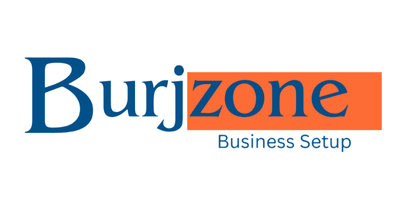Our Blog
Home / Blog
ESR Reporting 2025: What Changes UAE Businesses Should Expect
As the UAE continues aligning with international tax standards, the Economic Substance Regulations (ESR) have become a cornerstone of compliance for many businesses across Dubai, Abu Dhabi, Sharjah, and other Emirates. In 2025, updates to ESR reporting requirements are expected to tighten regulatory oversight—and businesses must be ready.
This article breaks down what ESR is, which sectors it affects, and what changes UAE-based entities should prepare for in 2025.
1. What Is ESR and Why Does It Matter?
The Economic Substance Regulations, introduced in the UAE in 2019, were implemented to comply with OECD and EU standards and avoid being labeled a tax haven. ESR requires certain UAE businesses to demonstrate real economic activity and substance within the country, especially when earning income from specific “relevant activities.”
Failure to meet ESR obligations can result in hefty penalties, exchange of information with foreign tax authorities, and license suspension.
2. Which Businesses Are Affected?
ESR applies to entities engaged in relevant activities, including:
Holding company businesses
Banking and insurance
Lease-finance businesses
Shipping
Intellectual property
Distribution and service center businesses
Headquarter operations
Investment fund management
Whether you’re in Dubai Mainland, RAKEZ, or Sharjah Free Zones, if your company earns income from one or more of these activities, ESR applies.
3. What’s Changing in 2025?
While the UAE Ministry of Finance has not yet released the final 2025 guidelines, the following changes are widely anticipated:
Stricter Documentation Requirements: Authorities will expect more robust proof of core income-generating activities (CIGA), especially in high-risk sectors like IP and finance.
Cross-border Transparency: Automatic exchange of ESR data with more jurisdictions under new international cooperation rules.
Higher Penalties: Non-compliance fines may rise, particularly for repeat offenders.
Tighter Definitions: Clarity around “adequate” premises, number of full-time employees, and expenditure in the UAE.
These changes are expected to impact businesses registered in Dubai Multi Commodities Centre (DMCC), Abu Dhabi Global Market (ADGM), and other free zones that host a high number of holding and service companies.
4. Key ESR Compliance Obligations
Every applicable UAE entity must:
Submit an ESR Notification annually (even if exempt)
File an ESR Report if income from relevant activities was earned
Maintain supporting records showing UAE-based operations, staff, and expenses
Demonstrate real substance for each activity reported
5. Common ESR Mistakes to Avoid
Submitting the notification late or incomplete
Failing to conduct a self-assessment for each relevant activity
Misclassifying income sources
Using generic or vague documentation to prove substance
Especially for consulting firms in Dubai, trading businesses in Jebel Ali, or holding companies in Sharjah, these mistakes can trigger audits or fines.
6. How to Prepare for 2025
Review your business model and assess which relevant activities apply
Keep detailed records of UAE-based operations—staff contracts, rent agreements, and expense receipts
Use ESR-compliant accounting and reporting tools
Work with a licensed ESR advisor to ensure your reports are complete and defensible
Final Thoughts
ESR is not just a box-ticking requirement—it’s a serious compliance obligation. In 2025, UAE companies in sectors ranging from shipping to holding to consulting must ensure they are operationally present and fully transparent.
Whether you’re based in Business Bay, Khalifa Industrial Zone, or RAK Free Trade Zone, preparing early for ESR changes can protect your license, reputation, and international partnerships.
#ESRReportingUAE #EconomicSubstance2025 #DubaiHoldingCompanies #UAEComplianceUpdate #FTAReporting #ADGMBusinessCompliance #SharjahFreeZoneRules #JAFZARegulations #CorporateSubstanceUAE #TaxTransparencyUAE
